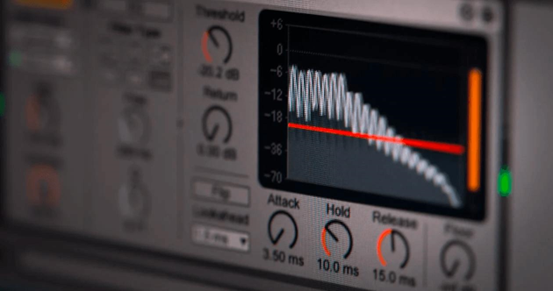In the realm of digital audio, where every
note and nuance matters, the concept of audio bitrate holds paramount
significance. Understanding this fundamental parameter is essential for anyone
seeking to appreciate and optimize their listening experience. Let's embark on
a journey to demystify the intricacies of audio bitrate and unravel its
profound impact on sound quality.
What is Audio
Bitrate?
Audio bitrate refers to the amount of data
used to encode audio per unit of time, typically measured in kilobits per
second (kbps). It represents the quality and file size of an audio file, with
higher bitrates generally resulting in better sound quality but larger file
sizes. Bitrate determines the amount of data transferred per unit of time and
directly impacts the quality of audio reproduction. In digital audio, a higher
bitrate means more data is used to represent the audio signal, resulting in
more accurate and detailed sound reproduction.

Types of
Bitrate
Two primary types of audio bitrate reign
supreme: constant bitrate (CBR) and variable bitrate (VBR). Let's delve into
their distinct characteristics:
1. Constant
Bitrate (CBR):
Constant Bitrate encoding ensures that the
bitrate remains consistent throughout the entire audio file or stream. In other
words, the same amount of data is used to represent each second of audio,
regardless of the complexity of the audio signal. Here are some key features of
CBR:
Predictable File Sizes: CBR encoding results in consistent file sizes, making it easier to
manage and estimate storage requirements.
Stable Bandwidth Usage: Streaming platforms and broadcasting often prefer CBR as it
maintains a stable bitrate, ensuring smooth playback without fluctuations in
data transfer rates.
Simplified Encoding: CBR encoding is simpler and more straightforward compared to VBR,
making it suitable for applications where simplicity is preferred over nuanced
adjustments.
2. Variable
Bitrate (VBR):
Variable Bitrate encoding dynamically
adjusts the bitrate based on the complexity of the audio signal at any given
moment. Here's what sets VBR apart:
Adaptive Encoding: VBR allocates more data to complex audio segments while using less
data for simpler parts, resulting in better overall audio quality and
compression efficiency.
Optimized File Sizes: VBR encoding can achieve higher audio quality at smaller file sizes
compared to CBR, as it optimizes data usage based on the audio content's
requirements.
Challenging to Manage: While VBR offers superior audio quality and compression efficiency,
it presents challenges in managing file sizes and estimating bandwidth
requirements due to its variable nature
Guidelines for
Choosing Audio Bitrate
Prioritize Quality: Opt for higher bitrates, especially for critical listening or
professional applications, to ensure uncompromised sound fidelity.
Manage File Sizes: Balance quality and efficiency by considering storage constraints
and bandwidth limitations, particularly in streaming or sharing scenarios.
Understand Compression: Familiarize yourself with compression techniques and their
implications on audio quality, choosing formats that align with your
preferences and requirements.
Lossless Compression (e.g., FLAC, ALAC): Preserves original audio data, maintaining high
quality even at lower bitrates.
Lossy Compression (e.g., MP3, AAC): Sacrifices some audio data to reduce file size,
potentially compromising quality, especially at lower bitrates.
Conclusion
In this article, we talked about what is bitrate in audio,
bitrate types, and how to get the right audio bitrate. By understanding its
nuances and implications, you empower yourself to curate an audio experience
that resonates with your senses and preferences. As you embark on your audio
journey, let bitrate be your guiding melody, leading you towards a realm of
sonic excellence and immersive soundscapes. Embrace the intricacies, explore
the possibilities, and revel in the transformative power of digital sound
quality. Let your ears be the ultimate judge as you unlock the essence of audio
bitrate, transcending mere data to embark on a voyage of sonic discovery.



